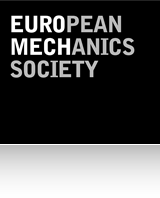633 – Nonlinear Metamaterials and Smart Structures
Chairperson:
Alireza Ture Savadkoohi
Université de Lyon, ENTPE
LTDS UMR CNRS 5513
3 Rue Maurice Audin
F-69518 Vaulx-en-Velin Cedex
France
Email: alireza.turesavadkoohi@entpe.fr
Co-chairperson
Daniele Zulli
University of L’Aquila,
Department of Civil, Construction, Architectural and Environmental Engineering
Piazzale Ernesto Pontieri 1
I-67100 L’Aquila, Italy
Email: daniele.zulli@univaq.it
Jaroslaw Latalski
Lublin University of Technology,
Department of Applied Mechanics
ul. Nadbystrzycka 36,
20-618 Lublin, Poland
Email: j.latalski@pollub.pl
Metamaterials and advanced composites are modern materials engineered to benefit from mono- or multi-physics interactions. Typically they are designed to obtain novel functionalities or non-classical extraordinary structural properties that are not observed naturally, both in micro and macro scale behaviors. The customized unique features may comprise zero or negative mechanical properties such as Poisson’s ratio, rigidity, mass, shear modulus etc., or extreme values of electrical parameters like effective permittivity and permeability.
All these factors can contribute to e.g. response bandgaps, where the system halts to respond or responds in a controlled manner against external excitation, or to induced strains and energy localizations in structures. The design requirements can be even extended to developing metamaterials with time-dependent and adaptive coefficients.
The core topic of this colloquium is “designing and exploiting induced adaptive or constant nonlinearities” in metamaterials and composite structures for improving their behaviors beyond the classical linear domains. The goal is to achieve desired responses such as shock/strain/noise mitigations, resonance shifting, energy localization and/or focalization phenomena. Some specific examples of such materials are pure mechanical metamaterials, piezo-based systems, shape memory alloys, electroactive polymers and magnetoactive/magnetorheological elastomers.
The colloquium intends to cover a large range of developments expanding from pure analytical and numerical studies to experimental results. Engineering applications comprise a wide spectra of mechanical, electromechanical, vibro-acoustical, pure acoustical and optical systems focusing on control of low to high frequencies modes for noise and vibration isolations and localisation of energies.
The colloquium sessions are focused on:
- Architected mechanical metamaterials: Exploitation of nonlinearities in elastic and/or inelastic domains in microscale for creation of extraordinary responses in macroscale.
- Smart materials/composites: Designing/programming nonlinearities for multiple state shock and vibration/wave control, sensing or for creation of intelligent inter-modal energy exchanges.
- Computational mechanics for design of nonlinear metamaterials and composites: topology optimisation, model-driven and data-driven techniques, homogenisation, etc.
- Studying and analyses of nonlinear waves in nonlinear metamaterials and composites via analytical and numerical tools such as bifurcation theory, multiple scale method, etc.
